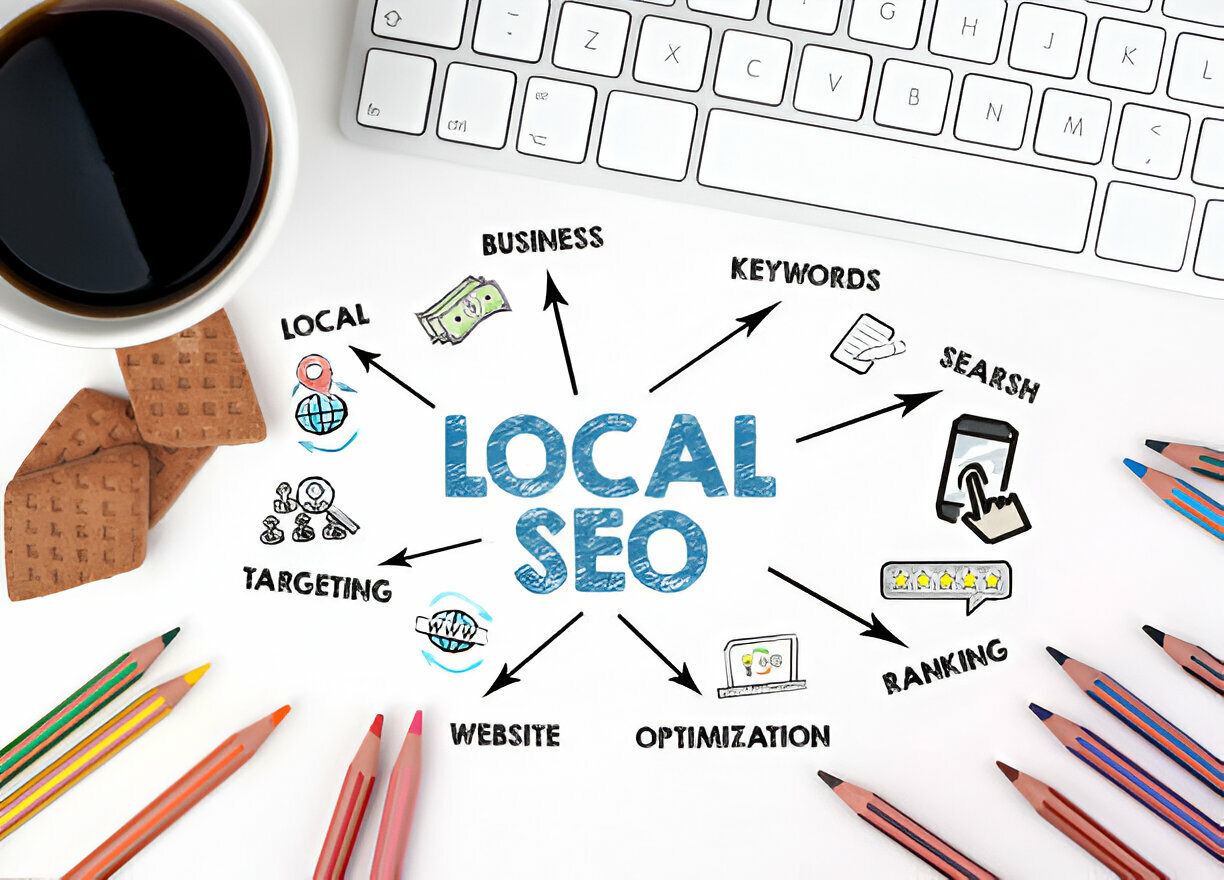In today’s competitive digital landscape, achieving visibility across multiple locations is crucial for businesses aiming to expand their market reach. Multi-location SEO (Search Engine Optimization) plays a pivotal role in enhancing local presence and driving growth.
By optimizing your digital footprint across various locations, businesses can attract new customers, boost brand awareness, and improve their bottom line.
This comprehensive guide will explore the intricacies of multi-location SEO, its benefits, ranking factors, and actionable steps to implement an effective strategy.
Whether you’re a small business or a large enterprise, understanding and leveraging multi-location SEO can significantly impact your success in today’s digital age.
What Is Multi-Location SEO?
Multi-location SEO is a strategy that focuses on optimizing a business’s online presence to rank effectively in search results across various geographic locations.
This goes beyond traditional SEO practices by customizing efforts for each specific area, ensuring that the business appears prominently in local searches. Multi-location SEO involves creating and optimizing individual pages for each location, managing local business listings, and developing location-specific content to engage local audiences and drive targeted traffic.
Benefits Of Multi-Location SEO
Multi-location SEO offers several advantages that contribute to business growth:
Boost Local SEO Results
Implementing multi-location SEO strategies helps businesses improve their rankings in local seo search results. By optimizing for specific locations, companies can ensure that they appear more frequently in searches conducted by users in those areas.
This heightened visibility makes it easier for local customers to find and engage with the business, leading to increased foot traffic and sales.
For example, a restaurant chain with multiple locations can appear in local searches for “best pizza near me,” attracting customers in each area it serves.
Attract New Customers Through Local Search
By optimizing for multiple locations, businesses can appear in local search queries conducted by potential customers looking for products or services in specific geographic areas.
This targeted approach attracts new customers who are actively seeking what the business offers, thereby increasing the chances of converting searches into sales.
For instance, a car rental service with locations across a city can capture searches like “car rental in [neighborhood],” drawing in customers from different parts of the city.
Improve Brand Awareness
Enhanced visibility across multiple locations not only attracts more customers but also strengthens brand recognition.
By consistently appearing in local search results, businesses build trust and credibility within local communities. This heightened awareness can lead to more word-of-mouth referrals and a stronger overall brand presence.
A fitness center with locations in various neighborhoods can become a well-known name, trusted by residents for their fitness needs.
Local SEO Locations Ranking Factor For Your Needs

Several factors influence local SEO rankings, and it’s crucial to address these to achieve optimal results:
1) On-Page Factors: This involves optimizing location-specific keywords, meta tags, and content to ensure relevance for local searches. Each location page should be tailored with unique content that addresses the specific needs and interests of the local audience.
For example, a page for a coffee shop in downtown might emphasize the convenience for office workers, while a page for a suburban location might highlight the family-friendly atmosphere.
2) Backlink Profile Factors: Building a strong backlink profile is essential for local SEO. This includes acquiring quality backlinks from local sources and authoritative websites. Local backlinks signal to search engines that the business is relevant and trusted within the community.
A local bakery might get backlinks from food bloggers, local news sites, and community event pages, enhancing its local SEO profile.
3) Citations: Consistency in business information across local directories and listings is crucial. Accurate citations (business name, address, phone number) across the web help search engines verify the legitimacy and location of the business, improving local search rankings.
Ensuring that your business information is consistent on platforms like Yelp, Yellow Pages, and local chambers of commerce websites is vital.
Tips and Steps to Start Multiple Location SEO:
To effectively implement multi-location SEO, follow these essential steps:
Build Specific Pages For Each Location
Create dedicated web pages for each location your business serves. These pages should include location-specific keywords, content, and relevant information to attract local customers. Each page should be optimized to address the unique needs and interests of the local audience.
For instance, a page for a retail store in a city center should highlight nearby attractions and shopping options, while a page for a suburban location might focus on ease of parking and local community events.
Optimize Your URLs
Ensure that your URLs include location keywords to enhance their visibility and relevance for local searches.
A well-structured URL can improve click-through rates and help search engines understand the geographic focus of the page. For example, a URL like “www.example.com/los-angeles-coffee-shop” is more effective than a generic URL.
Create Location-Specific Content
Develop content that resonates with local audiences by addressing their interests, events, and community news. This localized content helps establish a connection with the local community and enhances the relevance of your site for local searches. For example, a blog post about a local festival or a guide to neighborhood attractions can attract and engage local customers.
Build Quality Backlinks For Location Pages
Acquire backlinks from local businesses, community organizations, and directories to boost the authority and ranking of your location pages.
Quality local backlinks are a strong signal to search engines about the relevance and trustworthiness of your business in specific areas.
Collaborate with local influencers, participate in community events, and sponsor local activities to gain valuable backlinks.
Optimize Your Business For Knowledge Panel
Claim and optimize Google My Business profiles for each location. A well-maintained Google My Business profile can appear in Knowledge Panels and local map results, increasing your visibility and providing potential customers with essential information about your business.
Ensure that each profile is complete with accurate business hours, photos, and service descriptions.
Creating A Google Business Profile For Each Location Page
Ensure that each location has a verified and fully optimized Google Business Profile. This profile should include accurate business information, operating hours, photos, and customer reviews to enhance local search visibility.
Encourage customers to leave reviews and regularly update the profile with new photos and posts about your business.
Earn Reviews For Location Pages
Encourage satisfied customers to leave positive reviews on Google and other relevant platforms. Reviews build trust and credibility, influencing potential customers’ decisions and improving local search rankings. Implement a review generation strategy by asking for reviews via email, social media, and in-store prompts.
Addressing Bad Reviews and Negative Feedback
Respond promptly and professionally to negative reviews. Demonstrating a commitment to customer satisfaction and addressing issues transparently can mitigate the impact of negative feedback and showcase your dedication to quality service.
Develop a process for monitoring and responding to reviews across all platforms to maintain a positive online reputation.
Avoid Keyword Stuffing
Integrate keywords naturally into your content and meta tags. Overuse of keywords (keyword stuffing) can lead to penalties from search engines and negatively impact your rankings.
Focus on providing valuable content that answers the needs of your local audience, using keywords in a way that enhances readability and relevance.
SEO Strategy For Multiple Locations
Implementing a cohesive SEO strategy for multiple locations involves:

Creating Content For Landing Pages
Craft compelling landing pages that highlight unique offerings and services for each location. These pages should be optimized with relevant keyword research and engaging content to attract and convert local customers.
Highlight local promotions, customer testimonials, and unique selling points tailored to each location.
Specific Location Attributes
Highlight specific attributes or features that differentiate each location. Tailor your content to address the unique characteristics and preferences of local audiences, enhancing the relevance and appeal of your pages.
For example, emphasize the eco-friendly practices of one location or the award-winning chef at another.
Final Thoughts
Multi-location SEO is a powerful strategy for businesses looking to expand their reach and connect with local communities. By optimizing your online presence for multiple locations, you can attract new customers, build brand awareness, and drive sustainable business growth.
Prioritizing local SEO efforts and tailoring strategies to each location’s unique dynamics will position your business for long-term success in an increasingly competitive digital landscape.
Whether you’re a small business or a large enterprise, investing in multi-location SEO can yield significant returns and establish a strong local presence.


